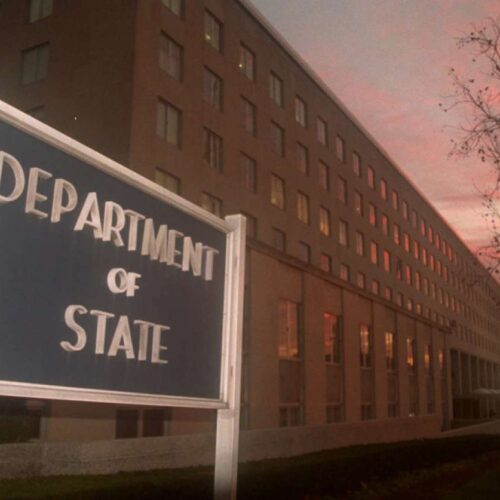Introduction
A new bill approved by Congress last week would again make the Defense Department the premier funder of security assistance to foreign countries, giving it more than double the comparable budget of the agency popularly associated with America’s foreign aid, the State Department.
The $17 billion Pentagon aid budget for the 2012 fiscal year is the second in a row to exceed the State Department’s by $10 billion, a disparity that has begun to provoke debate among foreign policy experts in Washington. Seven years ago, circumstances were reversed, with the State Department spending triple the amount the Pentagon spent on such aid.
Some foreign aid experts have complained that, as a result of the shifting responsibilities, U.S. aid priorities have shifted from trying to establish good governance to supporting stronger foreign military partners.
Defense-funded security assistance programs, like those funded directly by the State Department, include military and police training, counter-drug assistance, counterterrorism activities, and infrastructure projects. These programs, detailed in the 2012 National Defense Authorization Act, have been steadily expanding, according to a March 2011 report by the Stimson Center, a nonprofit research group in Washington.
The expansion has largely come at the expense of the authority of the State Department, which was long chiefly responsible for the planning, budgeting and oversight of security assistance – including military training – with the Department of Defense responsible for implementation. After 9/11, the Pentagon has assumed more authority in foreign aid budgeting and planning.
The shift in responsibility has “raised questions about their relationship to the programs, responsibilities and authorities of the Secretary of State,” the Stimson Center’s report said. By supporting mostly foreign military programs, “you end up strengthening those instruments which are least democratic fundamentally,” said Gordon Adams, a Stimson Center expert on military budgets and former associate director of national security at the Office of Management and Budget.
The bill, approved by the House and Senate last week, authorizes spending $100 million more than last year on foreign counterdrug activities, and more than doubles spending for counterinsurgency efforts in Pakistan (to $1.1 billion). It also establishes three new foreign assistance programs at a total cost of $310 million, supporting counterterrorism forces in East Africa, troops fighting the Lord’s Resistance Army in Uganda, and a crisis prevention fund shared with the State Department.
The Pentagon has argued that supporting foreign forces reduces the chance that U.S. troops will be deployed overseas. The Pentagon has also long complained that State Department-run aid programs are too slow and inflexible. Its combatant commanders now frequently tap funds that can be distributed almost at will, known in aid parlance as “walking around money” and formally as the Combatant Commander Initiative Fund and the Commander Emergency Response Fund.
The 2012 budget bill authorizes spending of more than $415 million for these funds, or around $100 million less than in 2011.
Adm. Mike Mullen, chairman of the Joint Chiefs of Staff, told a Senate subcommittee in February that providing support to foreign militaries is vital because it demonstrates the United States’ “responsible military leadership” and helps “reassure our allies.”
Mullen pointed out three security assistance programs in particular that he said were especially important for stabilizing conflict-prone countries: support for counterterrorism forces in East Africa, the Commanders’ Emergency Response Fund, and the fund to train and equip foreign militaries around the world.
Congress agreed and appropriated $825 million.
Mullen also supported the State Department’s leadership in diplomacy. The new Global Security Contingency Fund, funded in the defense budget for $200 million, is money shared by the Defense and State departments for crisis prevention as needs arise. But that sum represents one percent of the Pentagon’s overall military aid budget.
Some independent groups have urged that all foreign aid be pooled under reinforced State Department control, with the Defense Department providing input in planning and taking the lead in implementation. Adams said he favors a Pentagon lead in countries where U.S. soldiers are in conflict. Otherwise, he said, programs focusing on governance should be funded first and through the State Department, with security assistance funded secondarily.
The Pentagon’s public affairs office declined comment.
Read more in National Security
National Security
Fissile materials remain poorly protected
Nuclear security risks remain high in countries with active fissile material programs
National Security
Problems with battlefield smartphones
Soldiers worry about distraction


Join the conversation
Show Comments